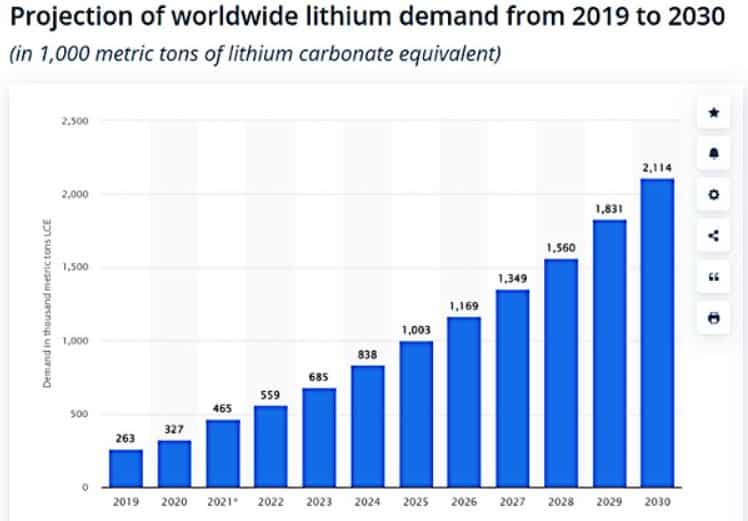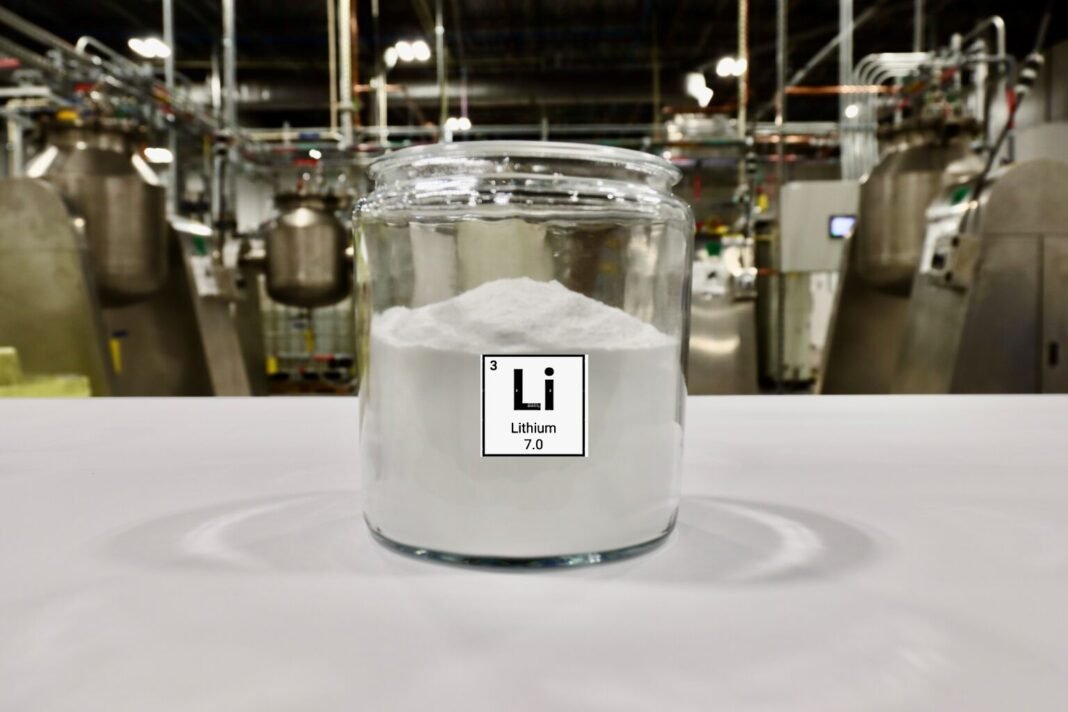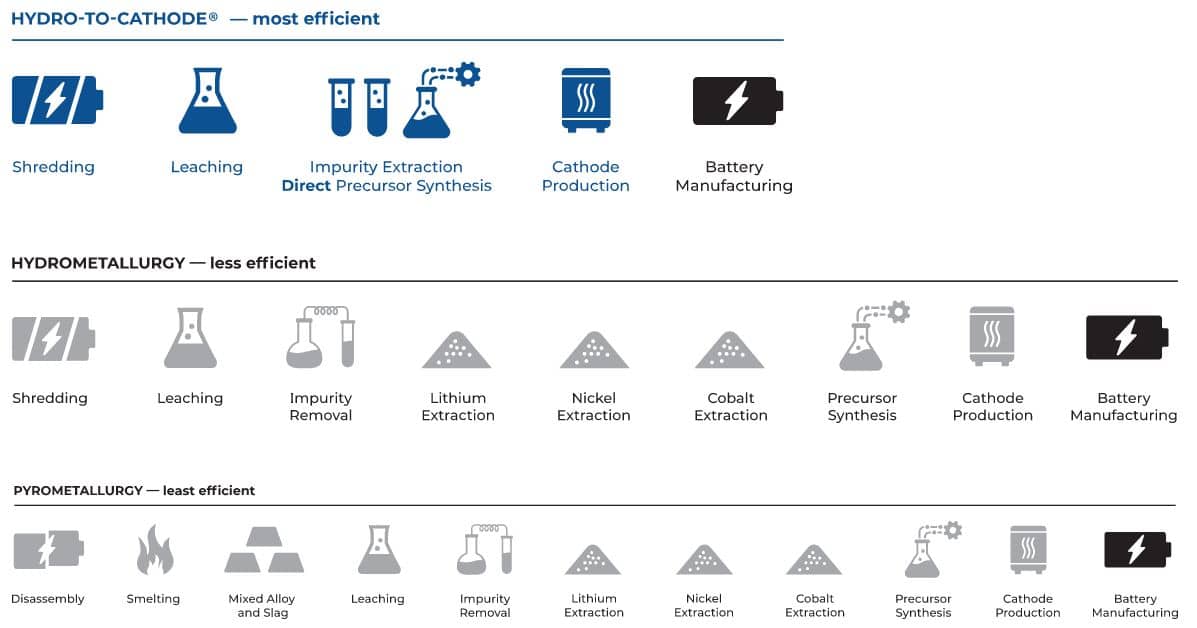As the world rapidly transitions to clean energy, solutions for clean technologies such as lithium batteries for electric vehicles are ramping up. Fueling this growth is the announcement of one of the largest cleantech private placements in the U.S. – a $542 million raise by Ascend Elements.
Ascend Elements is a leading provider of sustainable, closed-loop, engineered battery materials solutions for electric vehicles (EVs).
The Massachusetts-based company’s Series D round was led by Decarbonization Partners, Temasek, and Qatar Investment Authority. Other global investors joined the round, including BHP Ventures, Hitachi Ventures, Tenaska, Agave Partners, Fifth Wall, and more.
Goldman Sachs & Co. acted as the sole placement agent on this financing round.
Investing in America’s Lithium Battery Materials
The total raised equity investments include the $460 million Series D financing and another $82 million from previous investments. To date, it’s one of the top ten equity private placements in the U.S. this 2023.
Ascend Elements CEO Mike O’Kronley expressed gratitude for achieving this great milestone for the company. He also emphasized the importance of this massive investment in commercializing the production of their sustainable lithium-ion battery materials.
This, in turn, is critical to support growing demand for EV batteries and ramp up journey to net zero emissions. O’Kronley further noted that together with their existing and new investing partners, they are:
“…investing in North America’s critical EV battery infrastructure and bringing good manufacturing jobs back to the United States.”
The huge investment will be used for building North America’s first sustainable cathode precursor (pCAM) and cathode active material (CAM) facility in Kentucky, which the firm calls Apex 1. Construction started in October last year.
Once completed, the 1-million-sq.ft. facility will manufacture sustainable pCAM sufficient to power 750,000 EVs each year.
CAM and pCAM are engineered materials created through precise microstructure specifications for use in making EV batteries. Majority of these materials are made in China, primarily from mined metals.
Ascend Elements commercializes a method that produces pCAM and CAM from black mass – output of recycling lithium-ion batteries. Black mass usually contains high amounts of lithium and other critical metals that are recyclable in making new batteries.
A number of scientific studies showed that the manufacturer’s recycled battery materials from black mass share similar performance as critical metals from mined or virgin materials. Better yet, they can further reduce carbon emissions of the lithium battery production process by up to 93%.
The company’s patented Hydro-to-Cathode® direct precursor synthesis process doesn’t require intermediary steps typical in conventional cathode manufacturing as seen below. Thus, it offers substantial economic and carbon emissions savings, which is crucial for achieving net zero targets.
Developing Domestic EV Supply Chain
Ascend Elements gained strong momentum just within a year, achieving big support from major industry players.
In addition to getting strong backing from the private sector investors, the company is also winning government support. It won 2 grants from the Department of Energy amounting to $480 million coming from the Bipartisan Infrastructure Law.
All these public subsidies and private investments are geared at scaling up the domestic EV supply chain in the country.
Lithium supply, in particular, is crucial for companies operating in the sector. Being the key material in making batteries for EVs, the U.S. lacks enough supply of this critical metal and imported 66% more lithium-ion batteries in Q1 2023 compared to previous year.
This data underlines the need to ramp up domestic lithium production to meet growing demand from leading EV makers like Tesla, Rivian, Lucid Motors, Fisker, and Nikola. And globally, the race is on to secure this so-called white gold that fuels the EV revolution.
Projections show demand will surge to over 2 million metric tons by 2030.

One rare lithium company that strives to fill in the domestic supply gap is the American Lithium Corp. (AMLI), which has 2 of the largest lithium deposits in the Americas – TLC in Nevada and Falchani in Peru. The company recently published its first-ever Environmental, Social, and Governance (ESG) report.
The maiden ESG report highlighted American Lithium’s environmental stewardship, ethics and integrity, human rights and diversity policy, and social risk management aspects in running its lithium projects.
As demand for lithium-ion EV batteries continues to soar, every potential solution counts in bridging the supply gap. This is even more essential towards the U.S. 2050 net zero goal.
By reclaiming and recycling materials from spent lithium-ion batteries for new productions, Ascend Elements helps close the loop. Its innovative and sustainable pCAM and CAM process transforms waste into critical materials for future EV batteries, which is a giant step up in advancing sustainability in the industry.
Disclosure: Owners, members, directors and employees of carboncredits.com have/may have stock or option position in any of the companies mentioned: AMLI
Carboncredits.com receives compensation for this publication and has a business relationship with any company whose stock(s) is/are mentioned in this article
Additional disclosure: This communication serves the sole purpose of adding value to the research process and is for information only. Please do your own due diligence. Every investment in securities mentioned in publications of carboncredits.com involve risks which could lead to a total loss of the invested capital.


